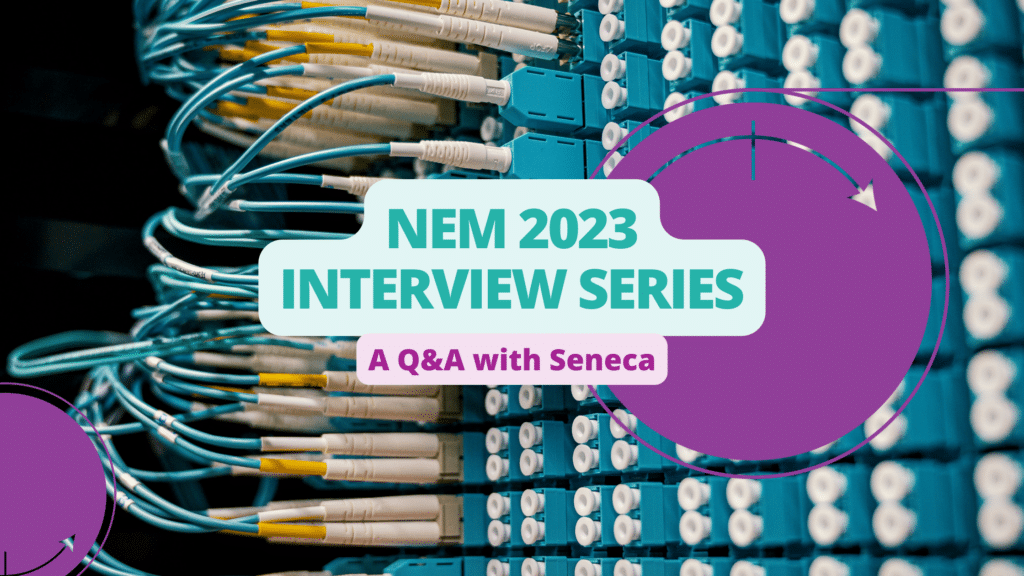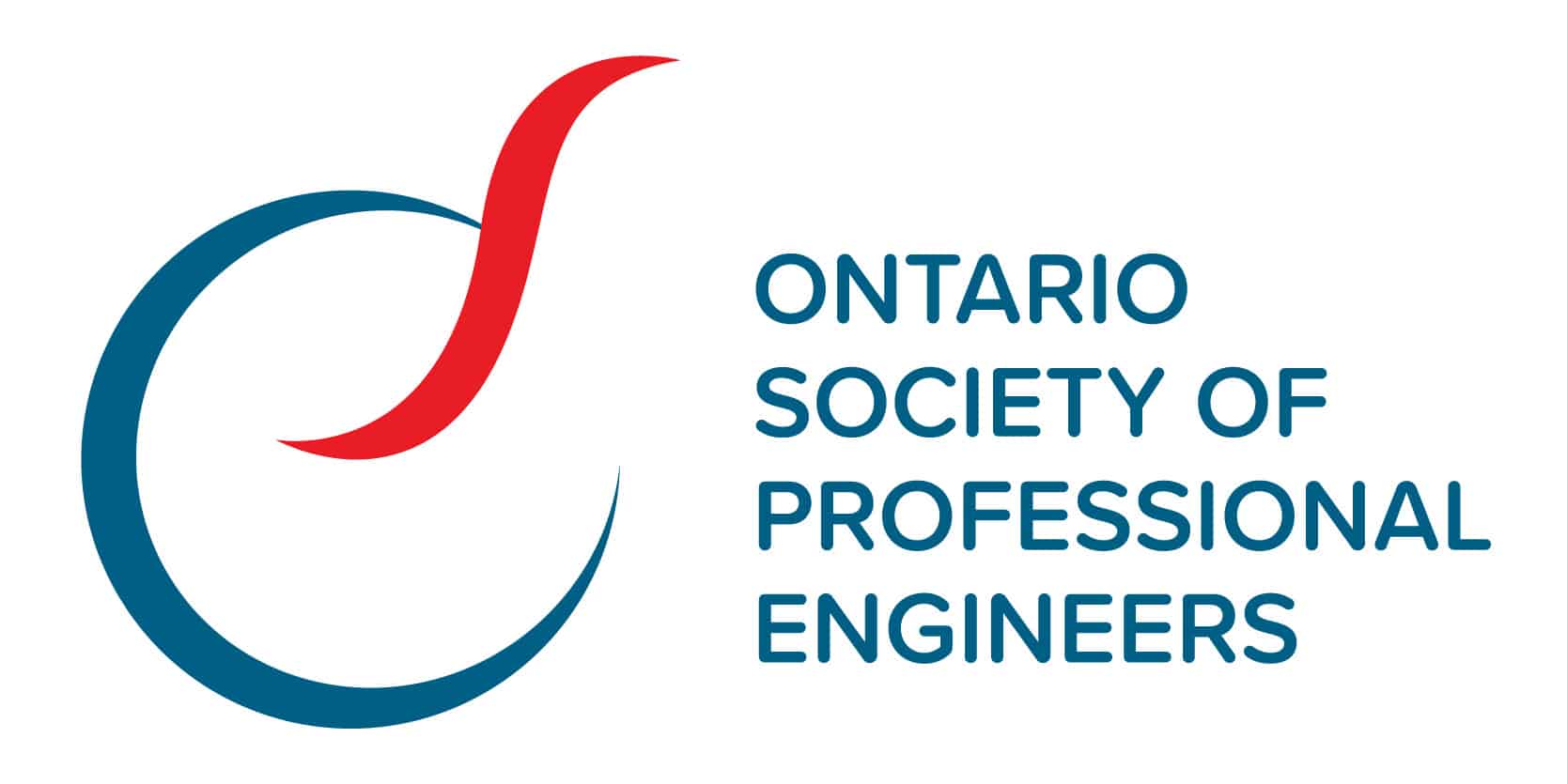
As the end of National Engineering Month (NEM) draws near, we would like to take this opportunity to highlight more leaders in the engineering industry and discuss their visions for the future.
In a recent interview, I had the pleasure of speaking with Professor Miguel Watler, P.Eng., PMP, Ph.D. from Seneca College. Our discussion covered the programs and projects offered by the Faculty of Applied Science & Engineering Technology (FASET), with a focus on topics such as sustainability, artificial intelligence, and digitization.
Tell me a bit about yourself & your background.
I was born in Jamaica, in the West Indies, and my entire family moved to Canada in the mid-1970s, so I grew up here. We ended up out West in Saskatchewan for six years. I did my bachelor’s degree at the University of Saskatchewan in Saskatoon. I then did my master’s at Queen’s University in Kingston, Ontario. Then I decided to take a year off and went to Haifa, Israel, to work at the Baha’i Center as a Network Technician. When I came back, there was a recession, so I decided to travel. I ended up in Poland, where I met a very good professor, and I did my doctorate there. I got married there and had a child. We came back to Canada in 1998, and I’ve been working in the industry for 20 years since then. I took an interest in teaching, so I taught part-time and did some courses on how to teach. I ended up with a full-time position at Seneca College in 2018. Shortly after I started here, I got this opportunity to work on our new Bachelor of Software Engineering degree that started a year and a half ago. I’m very lucky to end up where I am because it’s exactly the type of thing I’m good at and exactly the type of thing that I like to do.
Why is NEM important to Seneca and the engineering profession overall?
NEM is an opportunity for people to become aware of the engineering profession and appreciate its contributions to society. We play a critical role in the standard of living of the people around us. We have the ability to take concepts and turn them into reality to make people’s lives a little bit easier. This is why it’s essential to raise awareness of the importance of engineering to society.
The theme for NEM 2023 is lifelong learning. What does the concept of lifelong learning mean to you? Why is lifelong learning important in the work that you do?
If you don’t keep up, you’ll fall behind. When I graduated with my bachelor’s degree in Saskatoon and my master’s degree at Queens, they told us that every three years, technology doubles. One of the things they did a very good job of at Saskatoon, where I did my bachelor’s, was teaching us how to think and learn on our own. It’s imperative to realize that studying doesn’t end when you graduate from university. It continues throughout your whole life. The topics I’m involved with now were not taught back in the 1980s, so as a professor, I have to maintain relevance by keeping up with technology, even at the cutting edge of it. This helps me professionally, in my teaching and in my research, and also when passing this knowledge on to students. A distinguishing feature of any engineering program is the ability to learn to think for yourself, study on your own, and keep moving forward because it’s fast-moving.
Can you tell me a little more about Seneca and the types of projects you work on?
My involvement is deeply rooted in the development of the engineering program and creating courses for Seneca. However, Seneca has several departments that specialize in different areas. Seneca Innovation has numerous industry-focused projects that are worth mentioning. These projects aim to find solutions for real-world problems rather than conducting fundamental research. I would like to get involved with them at some point because they are fascinating. Additionally, they have a Health Technology Accelerator program that tries to find solutions for healthcare challenges, an Indigenous Center for Entrepreneurship, a Cybersecurity and Threats Intelligence program, and a drone academy. Seneca’s Aviation program is also well known, and they even have a joint academy for issuing certificates and licences for flying drones. Moreover, I find the Global Citizenship and Equity Learning program very intriguing. It encourages students to study abroad for a year, which is an excellent way to learn about different cultures and people.
How has the engineering profession changed over the past 5 to 10 years & how is Seneca capitalizing on those changes?
There is a much greater focus now on sustainability and the environment than there was when I was in school. These learning outcomes are now embedded in many of the courses we teach. For example, in the first-year software engineering course that I teach, we spend quite a bit of time discussing the need for sustainability, regulation, and the importance of controlling corporations to prevent environmental destruction. This is a significant change that has occurred.
Additionally, there has been massive growth in artificial intelligence. Our software engineering degree has a specific focus on artificial intelligence, which is a rapidly expanding field. The Internet of Things, digitization, and automation of many household items such as fridges, stoves, and garages is also becoming more prevalent. It’s unclear when this will happen, but there is a push toward quantum computing, which will change everything.
Are there any specific programs, initiatives, or outcomes happening at Seneca that you’d like to tell me about?
Seneca has several applied research projects underway., one project that caught my attention in our Applied Research Project Showcase. It’s called “Computer Assisted Strategies for Long Form Text Reading,” and it’s designed to comprehend up to 1,000 words at a time to help students with text comprehension difficulties. The project started about two years ago, and it’s a very interesting text comprehension technology using assistive software.
What does the future of engineering look like and how does Seneca fit into that?
Looking ahead, some of the big topics at Seneca include artificial intelligence, the environment, globalization, digitalization, and security. We have dedicated departments for networking and programming that delve into great detail on security and preventing attacks on systems. Cybersecurity is a big field at Seneca that has received a lot of resources. Artificial intelligence is also a focus in both our software engineering and data science degrees. We encourage students to travel abroad through our globalization initiatives, and we have a range of clubs and centres, including an Indigenous Center for Indigenous students. Finally, quantum computing is an emerging area that we may offer a course on within the next few years.
Any final thoughts?
One thing I’d like us as a community to think about is how we can attract more women to engineering in Canada. When I studied engineering, there were very few women enrolled in my program, and even today, women are a minority in our engineering classes. outstanding female Persian engineers, and I hear that over 50% of engineering graduates in Iran are women. We need to find a way to attract more women to the engineering profession in Canada.
For more information about the Faculty of Applied Science & Engineering Technology (FASET) at Seneca College, please visit their website.
Learn. Grow. Thrive. Together.
With bold topics, industry expertise, and diverse perspectives – National Engineering Month is Ontario’s engineering event of the year. Together we can advance the engineering profession, spark an interest in the next generation of engineering professionals and celebrate the role that engineers play in our society. We hope you can be a part of these incredible events by attending a #NEM2023 event. For more information about National Engineering Month Ontario events, please visit nemontario.ca.


